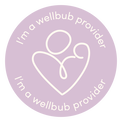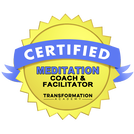AuthorJanel Briggs Categories
All
|
Back to Blog
Have you ever found yourself seeking happiness through external validation? For years, I placed my happiness in the hands of others, constantly thinking that if certain people or circumstances aligned in a certain way, then I would finally be happy. I would catch myself saying things like, "If my parents, sister, husband, son, boss, colleague, or X did THIS, then I would be happy." I tied my happiness to achieving good grades, receiving recognition at work, earning a promotion, or even reaching specific milestones in my first business. My joy was dependent on external factors and the validation they provided. The problem was, and what I've realised through Mindset Coaching, is that MY long term happiness is an internal job... I am the only one that can change it or make it happen. Yes, the external factors could give me a temporary hit of happiness, BUT they could never give lasting contentment. Here's why:  * We cannot control the external factors! Or other people's opinion of us * We cannot control how much or little someone loves us! Or HOW they specifically show us love The key was... I had to learn to know, love and accept MYSELF (all facets and parts of me) - in order to find my self-worth and experience a contentment that I never even knew existed. And the most amazing thing happened, when I stopped seeking external validation... I got my power back! In this video, I share the three crucial steps I took to break free from the cycle of seeking external validation and find true self-worth. Let me detail the 3 steps I took for you here: 1. Get clear on what is in your control and what isn'tI learned that I cannot control other people's actions, reactions, behaviours or even the way they love and treat me. I cannot control every single outcome, to every situation in my life. There will be uncertainty, there will be change, there will be things that do not always go my way. No matter how hard I work or try to make it different. I can only control what is within my circle - my mind, my body, my emotions and my behaviours. How I think, reaction and respond is up to me. 2. Start your day with a focus on self-careI started my day with a simple shift. In order to love myself fully and build self-worth I need to be the most important person in my world, my needs matter. My own self-care has to be a priority. I decided to wake up 15 mins earlier, to sit listening to a short 5 min guided meditation and I did 10 mins of journaling positive affirmations - something I had never done before! (If you are new to meditation I have a few to help get you started here) I spent 10 mins stretching and doing yoga, then ate a healthy nourishing breakfast and I listened to music while getting ready for work. I found this short 20-30mins of "me-time" first thing in the morning would calm and refocus my mind, before the chaos of the day began. When I filled my "needs cup" first, I found I wasn't looking to other people or external factors to fill my own needs. 3. Do one thing this week that brings you JOYI began a new habit where once a week I would do something that brough me joy - something just for me. Where I didn't have to do anything for anyone else. You see, I began to remember who I was outside of all the labels and hats I wore. Outside of the expectations, demands, stress and achievements of work. I started to love and reconnect to my inner child, the part of me that had gotten lost from putting all my happiness eggs outside my own basket. The part of me that was waiting for someone else to love, care and adore me, the way I wanted. It's an empowering feeling not waiting for someone to give you everything you need. I began to breathe easier and smile more often. Life felt less heavy and more enjoyable. I realise that it had to start with me, just like it has to start with you. And I am here to tell you - YOU can absolutely do it too. JB  About the Author: Janel Briggs is a NLP and Timeline Therapy Practitioner on a mission to support women across Australia and Singapore in healing their professional anxieties, insecurities and imposter syndrome to build unwavering confidence and self-belief. The goal is to level up your life and career by learning how to to live fearless and anxiety free! Connect with Janel on social media via Linkedin or Instagram.
0 Comments
read more
Back to Blog
As you probably know by now, our LIFE is a journey filled with countless ups and downs, twists and turns, and unexpected challenges within our story. Along this path, we often encounter mental and emotional roadblocks that hinder our progress, cloud our judgment, and leave us feeling stuck. Whether it's confusion about the next step, anxiety about making the right decision, hitting a creative or career block, a lack of motivation, or crippling self-doubt, the mind spins: Where am I going? Am I happy? What am I doing? When will I be happy? These obstacles can be frustrating and overwhelming, making it very difficult to move forward. Previously, before experiencing mindset coaching, I personally would have notched a roadblock up as failure. My mind had been programmed from a young age, that anything less than 100% was failure.
I would be totally stressed out, spiralling into anxiety overthinking all the WHY's and WHAT IF's... ultimately not feeling good enough. Which never EVER helped the situation! When negative emotions and fear rule the situation - it makes EVERYTHING harder. What I've learned since then is that hitting a mental or emotional roadblock does NOT mean I am a failure, or it’s the end of the road. It's actually a fork in the road, a good check in point. Here's why: An emotion in itself is a feeling, and feelings are not facts. The study of NLP (Neuro-Linguistics-Programming) tells us that we experience our first negative emotions in early childhood, typically 0-7 years old. If the negative emotion that we felt for the very first time (like fear, anger, hurt, guilt or sadness) was too confusing for our young mind, or left unresolved, the memory of that experience (and our reaction or response to it) is stored within the unconscious part of our mind. The part of our mind where our habits and patterns are formed, that essentially runs on auto-pilot. The mind then uses this past experience as a reference point for each time that specific emotion is arises in future. Unconsciously filtering new information coming in and present-day experiences on that past trigger point, even though we are no longer a child. The mind unconsciously in a split second says “remember that time you felt scared about X when you were young? This is JUST LIKE THAT”. When in 99% of circumstances it is not. So, our response as adults now to the fear is bigger and can often be out of proportion to the context of the situation in front of us. Have you ever wondered “Why am I so fearful of X, when other people are not? Why do I get so angry and frustrated about X, when so-and-so doesn’t even care? Why can’t I let go of it?” This is why, shown in my example above, I continued to notch up every “No” in my life as a failure. My mind had unconsciously stored an experience of failure when I was 7yo. From that moment I learned to react and respond with fear in a specific way any time there was a possibility of failure. This inhibited me in many ways throughout my adult life. The specific coaching that helped me to realise all of this and release my fear of failure and reprogram the self-limiting belief I had formed that I was not good enough, was the transformational process of TimeLine Therapy®. You can watch my video below to learn more about TLT or read about it here. Now thankfully, when a roadblock presents itself, I like to see the situation as a unique opportunity for inner growth and self-reflection. I am no longer trapped by fear of failure. And this is what I want for you too. It is the reason why just 6 months after working with a Mindset Coach myself in 2017, I went on to retrain and become a NLP and TimeLine Therapy® Practitioner – so I could pay this gift forward to other women just like me. Where do we start when we hit a mental roadblock? Absolutely, we need to honour our emotions and express them. There is a saying I like to remember: “What we resist - will persist”. You can only deny emotions for so long. We must begin to unpack the emotion and the trigger, and find healthy ways to release the emotion. The most powerful way to do this for me is to journal my thoughts. And instead of falling to pieces I stop and ask 3 simple questions to check in: 1. What emotions am I feeling? Why is this situation causing me to feel this way? 2. What are the options in front of me? 3. What is this situation trying to teach me? Or, what can I learn from this? When you are learning you are growing, and you are NOT failing. It's during these challenging moments that we have the chance to zoom out, look for higher perspectives, and tap into our intuition to find the solutions to move forward with ease. Conquering the fear of failure always begins with a process of self-discovery. The inner work for emotional healing may require patience and perseverance, but please know you are not alone! There is guidance and coaching available to support you, whenever you are ready.  About the Author: Janel Briggs is a NLP and Timeline Therapy Practitioner on a mission to support women across Australia and Singapore in healing their professional anxieties, insecurities and imposter syndrome to build unwavering confidence and self-belief. The goal is to level up your life and career by learning how to to live fearless and anxiety free! Connect with Janel on social media via Linkedin or Instagram.
Back to Blog
May is Mental Health Awareness Month, aimed at raising awareness on the importance of opening conversations about mental health to help release the stigma. AND always a great time to prioritise our own mental health check-in. Most women I've been talking to share with me that it’s been a crazy start to 2023. Post-pandemic life is as busy as ever, we are back to rushing and packing as much as we can into every day, week, and month. Juggling work commitments, family, relationships, and social life. Keeping everything afloat and as best we can moving forward. With our constant connection to technology and the digital world, it can be difficult to fully take a break and give our minds the rest they need to recharge our energy. I recently went on a mini break, adventuring to the remote Pangkil Island in Indonesia, where I consciously decided to take a 4 day digital detox, for my mental health. I had noticed the signs of verging on the edge of burnout after an increasingly busy first quarter of work (and life!). Even coaches need "mental health check-ins!" too. I actually couldn't remember the last time I shut off completely from technology. I don't know if I've EVER done it for a longer period of time that 2 days since opening my first online business in 2014. That's when you know it’s definitely time for a digital detox. So, I told my clients I would be “offline”, left my laptop at home, and bit the bullet! I put my phone on airplane mode for 4 WHOLE days. And, WOW. All I can say is that is was TOTALLY FREEING to not be "ON" 24/7:
Imagine that! Now, I have to admit I already have strong boundaries with my phone and technology. But I found being completely OFFLINE was sooo good for my mental health that it was surprisingly HARD to come back to the social media and online world after 4 days! I wished it could have be longer. The health and wellness industry tells us that taking a digital detox can have many benefits for our mental and physical health:
WHEN was the last time you took a digital detox? When did you last unplug from the matrix and reboot your system??If it's been a while, and you’re feeling exhausted, BUT find the concept of 4 days off the grid super confronting... here are four baby steps you can take for a mini digital detox: 1) Create a boundary around when you pick up your phone in the morning and evening Is 6-7am when you first open your eyes to a blast of notifications and emails the best way to begin the day? Could you not look at notifications until 8am? Could you turn off your phone for the night at 8-9pm? 2) Set time limits on your social media apps (you'll find this option in settings!) 3) Move all of your social media/email apps OFF your home screen to 2-3 swipe pages across If you're the kind of person (like me!) who cannot stand seeing a red notification and has to urgently actioon THIS really helps. 4) Pop your phone on DND for 4, 6 or 12 hours By setting boundaries with technology, we can improve our mental and emotional well-being, reduce stress, and increase productivity. You may not find it easy at firs to step away from your devices, but it is beneficial for overall health and happiness! Any step you can take towards a digital detox is going to be powerful, it’s a tool that can help you disconnect from the digital world and reconnect with yourself, your thoughts, and be more present in your surroundings. The ultimate goal is to create a healthier balance in our lives, where we feel more present and energised! Try one or two and reach out to let me know the outcome? All the best, Janel
Back to Blog
Our minds are powerful and valuable, but they can be tricky to master when situational anxiety flares up. Some people find they thrive in new experiences and love meeting new people. If you are one of those people, my hat goes off to you! Like many others, embracing the new is something I have had to learn how to love. If you’ve ever tried to support a loved one with anxiety, you’ll know that new events and situations where they are standing an abyss of so many unknown’s and all the uncertainty their fear can be debilitating. When it begins to unfold in front of us it’s like the person is fighting a battle we can’t see. We don’t exactly know what to do, or how to fix it. We want our loved one to listen to reason and be OK. But their fear can be so convincing that they believe something (everything!) bad is going to happen. As a Mindset Coach I want to share with you a proactive tool to help you to help them deescalate the situation, using a concept called reframing fear to excitement. REFRAME FEAR - TO - EXCITEMENT This tool will help your loved one calm the mind and move forward feeling more excited and confident. 1. Listen for the core language of anxiety. Words can be your guide to understanding when a person’s fear starting to building. A tell-tale sign is: WHAT IF (a bad thing happens)? WHAT IF (a negative outcome)? WHAT IF (resistance language "I can't") OR when you hear the person worst case scenario planning. (plan A, B, C, D) 2. Immediately get them to stop and ask them to take a breath. This will halt the mind bringing their awareness back into the body, and circumvent the thought process. 3. Reframe their language. This may take a little practice but start by repeating their “What IF” statement BUT instead of a bad ending you insert a good, or happy ending for them. Shifting the mindset to a positive outcome. “What IF it all turns out better than you could imagine? 4. Make the “unknown” known. Anxiety often sparks due to a fear of the unknown or uncertainty. Ask yourself and affirm what is known. What do we know about this situation? What can we be certain of? What is within our control. 5. Help them to understand that anxiety and excitement have the same vibrational feeling in the body. “You must excited? Imagine all the cool people you are going to meet, and all the fun you will have. Those butterfly’s show up when you get excited right?” 6. Reaffirm the excitement and positive outcome. “I am excited for you! This is going to be so fun. You’ll have a great time. Everyone will love meeting you, you have so much to offer.” EXAMPLE OF THIS TECHNIQUE IN ACTION:Recently, my almost 10yo son joined a new activity after school in Singapore with a group of kids that were older than him on a subject he was lacking in confidence. Even though he originally said he wanted to do this activity, the day of the first group event was looming, and he was beginning to drag his heels saying he no longer wanted to go. I get it, kids making friends and meeting new people can be overwhelming. But as a family we decided a long time ago to always make an effort to give it 1 chance. Then we can decide after that whether we keep it or ditch it. Usually, we keep it – as we are not in the habit of letting our fear of the unknown rule our lives anymore. In the car on the way to there, I could see his mind start to tick, tick, tick. He began to ask:
Immediately I knew as soon as he said “WHAT IF” this was fear talking, not his rational mind. His core language trigger to me was the phrase “What IF” followed by a resistance word (don’t, can’t) and a negative outcome. I could hear his anxiety building and this was a great opportunity to help him de-escalate the fear. I asked him to stop right there and take a breath. We took a big deep breath together. I then proceeded to use the power of positive language to reframe and shift his mind from the most terrible outcome he is imaging, to a good ending. I repeated his “What IF” back to him with a positive outcome:
I then helped him to make the “unknown” known by focusing on a previous experience.
I reminded him that fear and excitement have the same vibrational feeling of alarm in the body. “You must be feeling those excited butterflies in your tummy again. Excited butterflies come when we do fun and exciting things right?” We walked into the building and up the escalator into the activity room, we took the long way to get there - moving the body is very helpful to release stress hormones. We arrived and he turned to me and said “Mum, I am excited about this 😊”. I said, “Yes buddy, I am excited for you too – this is going to be so much fun!”. And it was fun, he had a blast. We pre-framed it to be a good experience. I picked him up an hour later and he raved about the activity and everyone in it. He smashed the activity and cannot wait to go again. We pre-empted for a good ending and primed his mind for fun. He could now feel the excitement buzzing withing his body INSTEAD of the fear. The entire process took us 5 minutes. You can absolutely do this too! With children AND adults. It’s so easy to allow fear to jump into the driver seat and take control of new situations where there are so many unknowns. But every time we do, fear wins. It takes our mind away from the joy and the fun of living in the present moment. When we treat our loved ones who struggle with anxiety with a level of compassion that also takes positive action we can begin to help them to learn how to bring their own anxiety alarm down and enjoy new experiences for what they are, FUN. I hope these suggestions help you support a loved one with anxiety. If you have any questions or comments, please reach out. If you or someone you know is sick of struggling with their anxiety I run a program called “Freedom from Anxiety” for women who are ready to feel more carefree and confident in all areas of their life. To learn more about Janel's Freedom from Anxiety Program 1:1 Coaching head here.  About the Author: Janel Briggs is a NLP and Timeline Therapy Practitioner on a mission to support women across Australia and Singapore in healing their professional anxieties, insecurities and imposter syndrome to build unwavering confidence and self-belief. The goal is to level up your life and career by learning how to to live fearless and anxiety free! Connect with Janel on social media via Linkedin or Instagram.
Back to Blog
A loss of identity and a crash of confidence can feel confronting, challenging and weird (especially when living overseas!). But it is possible to overcome it and get back to you. When I moved to Singapore from Melbourne in 2022, this was not my first rodeo at what they call becoming a “Trailing Spouse”. In 2007, my then boyfriend (now husband!) took a promotion within our company and we moved to the USA for 2 years, our first experience with the expat life. The experience was all parts incredible AND super challenging for me. At the time we were young and free! Dual income with zero responsibilities (remember that?!)- no kids, pets or mortgage! We both worked hard and played hard. We travelled EVERYWHERE, said yes to opportunities, and totally lived it up the experience. But not long after moving cracks began to appear in my mindset and mental health. Trailing spouse depression and identity loss is absolutely a thing, that I had no idea about. It wasn't in the brochure! As a fiercely independent woman of 30 I had NEVER before “given up my life” and put my own aspirations (and needs!) on hold for someone else … who at that time hadn’t even “put a ring on it” yet, as Queen B would say.
I had all the negative feelings, while watching my partner THRIVE in his work and his personal friendships. As you can imagine, this caused a massive strain in our relationship. I had lost my sense of identity, my value and self-worth. I realise now I had put all my happiness eggs in his basket in the relationship, expecting him to be EVERYTHING for me 24/7. I wanted him to fix me! And make me happy! Of course, that pressure was too much. Thankfully, this was a wake up call for me, a turning point where I decided I needed to work on me. I enrolled in University and went back to study, and I enlisted the help of my first NLP Coach and began the journey of understanding who I am, and what I wanted. SIGNS YOU MIGHT BE EXPERIENCING IDENTITY LOSS:
Fast forward 13 years marriage, one child, becoming a Mindset Coach myself and surviving a pandemic - we decide to move to Singapore last year for expat #2. Suffice to say this time I was more prepared. I spent my first few months noticing common themes throughout conversation I was having with other expat women here in Singapore. Pandemic burnout, overwhelm from moving to Asia without a support network, and anxiety arising from uncertainty and changes in working visas were recurring topics at every coffee meet up I joined. I began hearing echoes of the SAME feelings that I used to have. So many women who had moved for their partners career were suffering from an identity loss leaving them with too much time to think and worry about finances in the future. Although very grateful to be in Singapore for the expat experience, frustrations were felt around being unable to work and the fact that they put their life and career on hold to support their other half. This was the catalyst for me deciding to expand my Mindset Coaching business in Singapore. To be able to help these women who are feeling this sense of identity loss. To support those struggling with stress anxiety and ever growing “imposter syndrome” that come with big life changes. New Life Phase A loss of identity can happen at any time it does not relate to age or gender. Experts reveal that it can be triggered when a person enters a new life phase that makes them question their basic understanding of self. Major events such as changing careers, becoming apparent, ending a long-term relationship or moving to a new place can be a catalyst for those uncomfortable feelings where you just feel a bit, well, off. Research shows that relocation is the third most stressful life event possible. On top of this according to an InterNations survey, it's the partner of the expat with the job who tends to be more susceptible to mental health issues such as depression and anxiety and who is negatively affected by the move. Typically, this is because they:
(Tick, tick, tick from my experience way back in 2007!) In the beginning, the expat partner tends to focus on everyone else's happiness and getting the family settled as the priority. Once the transition is complete and all the tasks are done the questions begin to arise what do I do now? What is my purpose here? Where do I fit in? Who am I? Feelings of resentment, frustration, sadness, and hopelessness can set in. How to Shift Your Mindset The first step to navigate any big life change where you're feeling this sense of identity lost is begin to shift your mindset and try to see this journey, or new phase of your life, as an opportunity for personal growth, development and expansion. Here are 6 key points to help you get started: 1. Choose Acceptance Finding a place of acceptance for the circumstances you're in right now is key. Remembering that if your mind is too far in the past thinking about all the things that you don't have, you will continue to feel stuck. If your mind is too far in the future, you'll continue to feel anxious by the uncertainty. Both thought processes make it harder to find happiness and be in the present moment. Do note that acceptance doesn't necessarily mean that you have to surrender or like the situation, but having a willingness to accept your circumstances will release the resistance in the mind that creates undue stress. 2. Create Routine Routine serves as an anchor. Predictable, repetitive routines are calming and help reduce stress and anxiety. Formulating a weekly schedule can help you feel more motivated, organised and productive. How you begin and end your day matters. Are you feeding your mind with positive information and thoughts when you wake up? Are you feeding your body with nourishing food of movement during the day? Are you getting enough sleep? 3. Embrace Exploration Use this time to discover more about who you are:
4. Connect Recognise that you're not alone in your feelings. It can feel daunting to build interpersonal relationships in a new country but connecting with others and sharing your emotions can be very healing. 5. Catch Self-Doubt When negative or unhelpful thoughts creep into your mind, questioning your value or worth, practice catching the thought before it spirals. Understand that not every thought you think is factual, and feelings are not facts. The mind has a protection mechanism that wants to keep you safe. Instead of believing and listening to unkind self-doubt call it out by asking, “Where is the evidence to support this?” or “What is causing me to feel this way?”. 6. Reframe Your Language The words we choose have a positive or negative effect on our mindset. If you believe it's hard and say to yourself “This is hard, I hate this, I don't want this” then it will no doubt be harder for you. Whereas if you use more empowering words such as “I can do this, I can overcome this challenge” the mind will be more open to change and all the possibilities. This article was originally published ANZA (The Australia & New Zealand Association) Magazine Singapore, March 2023 edition (pg 34-35).  About the Author: Janel Briggs is a NLP and Timeline Therapy Practitioner on a mission to support women across Australia and Singapore in healing their professional anxieties, insecurities and imposter syndrome to build unwavering confidence and self-belief. The goal is to level up your life and career by learning how to to live fearless and anxiety free! Connect with Janel on social media via Linkedin or Instagram.
Back to Blog
How many times have you spent Sunday night dreadinggggg Monday morning? That angst beginning to build around 3-4pm as you start to realise how quick the weekend has gone and how soon you have to jump on the hamster wheel again. It may have even happened this week?!? As a Mindset Coach here are 7 things that I have learned to help relieve those Sunday night scaries and shift my mindset heading into the new week: 1. Do a "brain dump" Grab a pen and paper and for 5 minutes and literally dump all the thoughts and to do's you've got circling your head onto paper. If it's on paper these thoughts are more likely to stop circling your mind and making you feel overwhelmed. 2. Create a Weekly Plan So much of the time anxiety creeps in when we are flying by the seat of our pants... all the unknowns of the busy week ahead of us. Make a rough plan for the week, try not to fill every minute of your time, leave some room for flexibility. I also take 10 mins to cross check calendars and school events with my household on Sunday night so that EVERYONE knows what's happening that week. 3. Make Sleep a Priority The first thing I discuss with ALL my new 1:1 clients is sleep habits and how to get better quality sleep. Sleep is 100% a game changer for helping you become emotionally resilient to stress and anxiety. Aim to get into bed earlier on Sunday, with plenty of time to "wind down" - not to be confused with wine down!! Science tells us that every glass of alcohol before bed disrupts 15mins of our REM sleep, REM is the kind of sleep you want lots of to recoup your energy! 4. Turn off work notifications If your anxiety gets triggered by emails, texts or work messages coming in on Sunday night, then DND the work notifications. Everything can wait until you've hit your desk on Monday. There is nothing that will get by rehashing it at 3am when you're trying to sleep. 5. Pack the bags early In order to get 30mins for my morning routine (meditation, journalling, stretching, eating well) every week day, I have to be a little organised and cannot be scrambling to get my family out the door. This just ruins the zen! Packing the bags early and getting everything laid out for the next day 100% helps. If you’re single or don’t have kids perhaps use this time to prep your meals for the week or lay out your gym clothes. 6. Pump up the music Music is the answers to lifting and shifting any mood! Sunday’s nights I always put on a good playlist on Spotify and let the music fill the house with good energy. Whether I’m cooking, meal planning, packing bags or winding down for sleep music always makes me feel good! 7. Remember – everything that needs to get done, will get done No amount of worry and worst-case scenario planning will change the future. And no amount of overthinking the outcome will ever mean that it all goes to plan. Yes, be prepared, but release the pressure and trust that everything that needs to get done will get done. Just like it always does. And, if it doesn’t… life still goes on!  About the Author: Janel Briggs is a NLP and Timeline Therapy Practitioner on a mission to support women across Australia and Singapore in healing their professional anxieties, insecurities and imposter syndrome to build unwavering confidence and self-belief. The goal is to level up your life and career by learning how to to live fearless and anxiety free! Connect with Janel on social media via Linkedin or Instagram.
Back to Blog
Do you feel like you move through each day, month, year at the speed of light... but never actually achieve anything? I've been hearing this a lot from my new clients this year, like no matter what they do they still feel so far behind on those big life goals and dreams. Typically, when I hear a similar thought process a few times, I know it's valuable to share wider. So, I am giving you the exact tool I give to my clients in private coaching to increase their overall sense of well-being when goal-getting. It begins with a simple question: Q: When was the last time you celebrated YOURSELF and how far you have already come? The mind can so easily get stuck on "all the things we haven't done" or are "yet to accomplish". The ego telling us we are unorganised, lazy, and need to be "more productive". Essentially the mind's job is to assess for risk but, as you probably know these thoughts cause us to feel GUILT, perhaps like we aren't good enough. And guilt is 100% the biggest showstopper to any good action! Guilt creates resistance. We are less likely to do the things we want to do, when guilt is in the drivers seat. So, to cut the guilt and create more momentum it's time for a reality check. Here is the tool: At the end of each week take 5 minutes to sit and reflect. Grab a cuppa and a notebook and write down the answer to 3 questions: 1. What went well, or what were you proud of last week? |
|
Get in touch
Email: hello@janelbriggs.com |
Stay Connected
Subscribe and be the first to access new blog content news & updates. |

 RSS Feed
RSS Feed



















